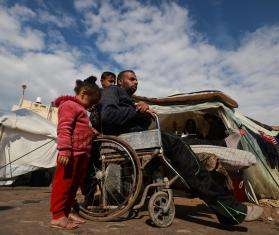Doctors Without Borders/Médecins Sans Frontières (MSF) and the secretary of state for health in Mexico’s Oaxaca State have signed an agreement to improve access to Chagas diagnosis and treatment.
Chagas disease is a systemic, chronic parasitic disease transmitted through the feces left by triatomine insects—or kissing bugs—contaminated by the parasite. Humans contract the parasite through contaminated food (oral transmission), contaminated blood transfusions, or by transmission from mother to child.
Chagas disease is endemic in 21 countries in the Americas, but infected migrants may carry it to non-endemic countries, as has been seen in the past years. It is estimated that in the American region nearly 100 million people are at risk of contracting the disease, and about 8 million are already infected (more than 95 percent of those already infected have never had access to diagnosis, let alone treatment). Every year there are an estimated 56,000 new cases, causing 12,000 deaths a year.
The inhabitants of San Pedro Pochutla municipality and Mazunte town in Oaxaca State’s Santa María Tonameca municipality will be able to access Chagas disease diagnosis and treatment as a result of the new agreement signed by MSF and the secretary of state for health.
“The project, [which] will last two years, seeks to develop a comprehensive care model within the health system, ensuring the diagnosis and treatment of people living with the disease,” says Marc Bosch, MSF general coordinator in Mexico. “The idea is that it may be replicated to other areas where Chagas is also endemic to benefit as many patients as possible.”
Through the project MSF plans to provide technical support to health facility staff in the intervention area with the objective of attracting, diagnosing, and treating patients living with Chagas disease. It is estimated that 4 to 12 percent of the area’s population has the disease.
MSF will also support the supply of rapid diagnostic tests, electrocardiograms, and the medicines Benznidazole and Nifurtimox to treat patients during the first six months of the project.
The intervention will also support the Vector Control Program, which seeks to eradicate the insect carrying the disease in the intervention area and train medical staff in prevention of mother-to-child transmission and safe transfusions.
Since 1999, MSF has been offering free Chagas diagnosis and treatment through projects in Honduras, Nicaragua, Guatemala, Colombia, Bolivia, Paraguay and, more recently, Italy and Mexico. To date, MSF has tested over 90,000 people for Chagas and treated more than 6,000 patients.





